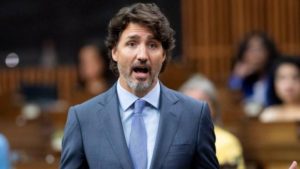
The elections in Canada are scheduled to be held on September 20.
Prime Minister Justin Trudeau formally launched his election campaign on August 15 after asking Governor General Mary May Simon to dissolve the 338-member Parliament. Trudeau called the snap elections two years ahead of schedule to try and capitalise support for his handling of the Covid-19 pandemic.
The Liberal leader has acknowledged that some voters may not think an election is necessary for the country to move past the pandemic, but he added that it is important to make a choice and asked progressive voters anew to support his party.
Meanwhile, the Liberal party under Justin Trudeau has expanded immigration into Canada since 2015, primarily through its Express Entry program. Immigrants have accounted for more than 80 per cent of Canada’s population growth in 2019. The immigration laws are likely to remain unaffected.
RISE IN IMMIGRATION AFTER PANDEMIC
In 2020, immigration in Canada dipped 50 per cent in comparison to 2019. 1.8 lakh people immigrated in 2020. However, in 2021, immigration bounced back as 70,500 individuals were granted permanent residency in the first quarter of 2021.
EXPANSION OF SUPER-VISA PROGRAMME
The Conservative Party in Canada in its manifesto has proposed to expand the ‘Super Visa’ programme. It will allow family members of new Canadians to come to Canada.
TIES BETWEEN INDIA AND CANADA
India is currently the largest source country for migrants to Canada and is likely to remain so in the coming years.
The major parties to look out for in the polls are the Liberal Party, the Conservative Party, the Green Party, the New Democratic Party led by Indian-origin Jagmeet Singh, and the Bloc Quebecois.
The latest polling suggests the Liberals and the Conservatives are in a virtual dead heat with neither likely to land a majority mandate on Monday.
With inputs from PTI




 Driving Naari Programme launched in Chandigarh
Driving Naari Programme launched in Chandigarh






























